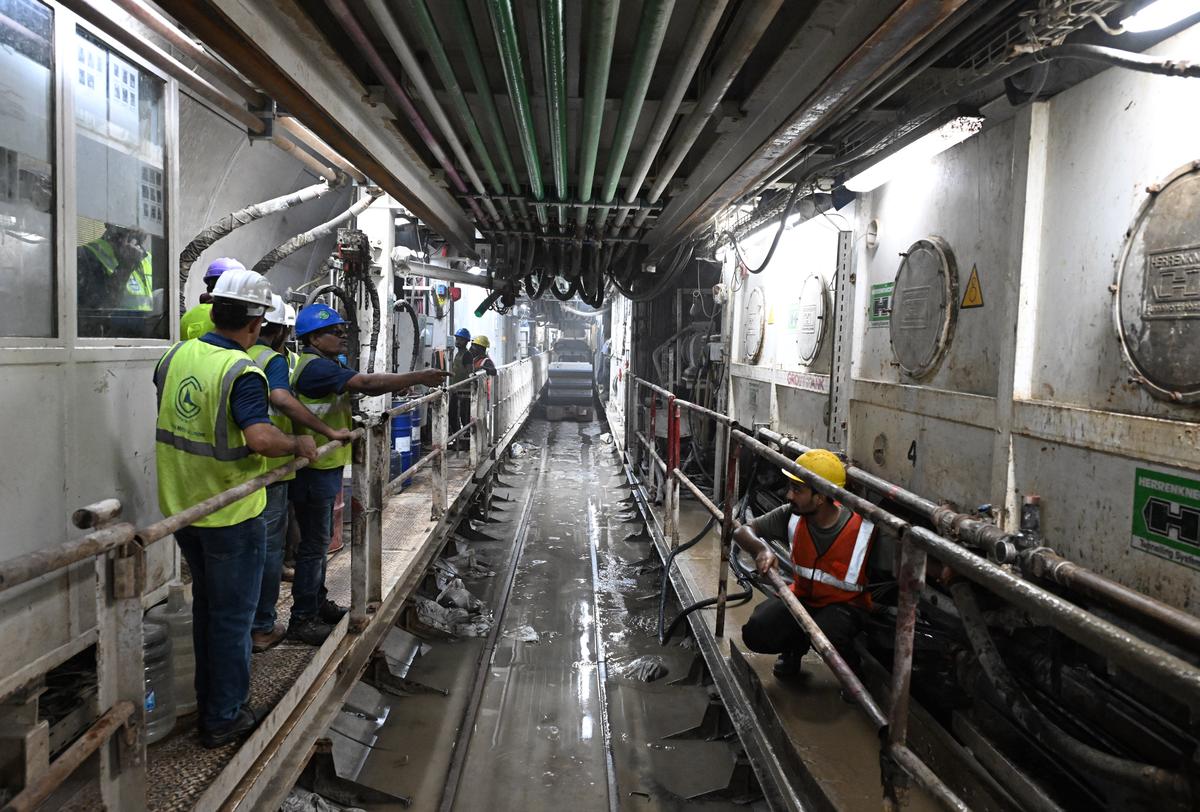In a significant boost to Chennai’s urban infrastructure, a key tunnelling milestone was achieved under the city’s Metro Phase 2 expansion.
The Tunnel Boring Machine (TBM) codenamed Kalvarayan successfully completed its drive at Perambur Station on Corridor 3, which spans 45.8 kilometres between Madhavaram and SIPCOT. The breakthrough is a critical stride in the city’s efforts to expand its rapid transit network while promoting eco-conscious mobility solutions. The underground tunnelling is being executed by Tata Projects under Contract TU-01, awarded by Chennai Metro Rail Limited (CMRL). The scope involves constructing twin tunnels in the first nine-kilometre stretch of Corridor 3 a vital segment that interconnects the fast-growing northern and southern parts of the city.
TBM Kalvarayan, a German-made machine deployed for this complex geotechnical challenge, commenced its 867-metre up-line tunnel drive from Ayanavaram Station and achieved its breakthrough at the southern shaft of Perambur. It is the seventh TBM deployed under this contract, reaffirming the scale and technical precision involved in the project. Launched in 2021, the TU-01 contract aims to construct approximately 18 kilometres of twin bored tunnels, in addition to diaphragm walls, station box structures, and launch/retrieval shafts at key stations including Madhavaram Milk Colony, Murari Hospital, Ayanavaram, and Purasaiwakkam High Road.
This underground tunnel breakthrough is more than a feat of engineering. It is emblematic of Chennai’s pivot towards equitable, low-emission public transport solutions. As the city battles rising vehicular congestion and urban sprawl, the Metro’s expansion offers a sustainable and inclusive lifeline. With a strong emphasis on last-mile connectivity, improved accessibility, and faster commute times, the Metro network is poised to shift commuting patterns, especially for middle- and lower-income groups who rely on affordable public transit. Phase 2 of the Chennai Metro, when complete, is expected to reduce the carbon footprint of intra-city travel significantly. By expanding access to electric and rail-based mobility, the project aligns with India’s larger urban sustainability goals and the Smart Cities Mission. In addition, enhanced underground connectivity helps preserve surface land use, allowing cities to grow vertically while safeguarding green cover and pedestrian infrastructure.
While challenges in execution and coordination persist in large-scale metro developments, the breakthrough at Perambur reaffirms the viability and momentum of the project. With every completed segment, Chennai edges closer to a cleaner, faster, and more equitable transit system an urban future less reliant on polluting road-based transport. As construction continues across other sections, CMRL’s commitment to delivering on time-bound targets will be crucial in sustaining public trust and meeting the city’s rising demand for reliable transport.
Also Read :Mumbai Metro Bridges Forging Seamless Connectivity and Easing Urban Traffic Congestion


